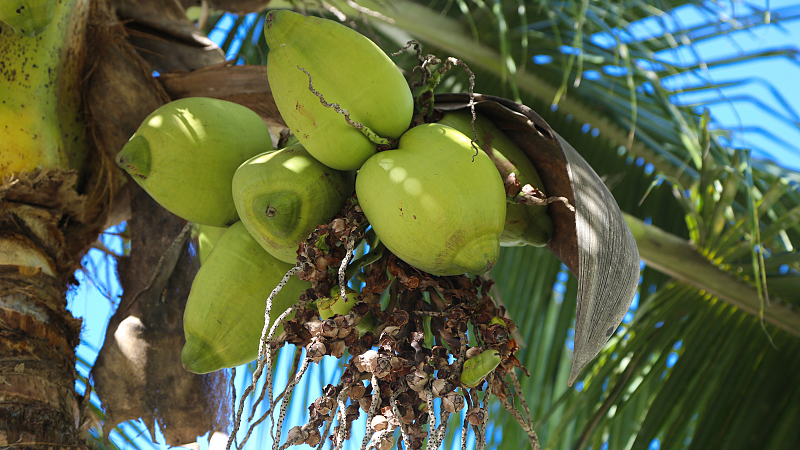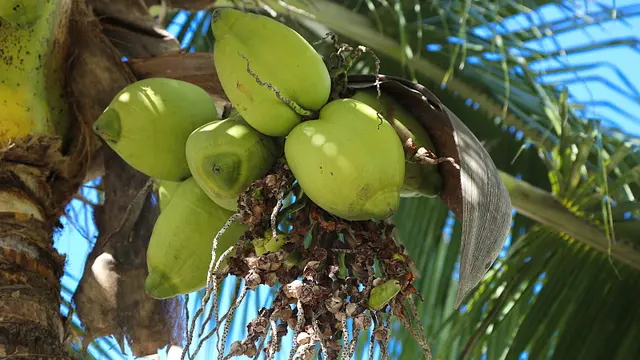
For students feeling the pinch from the pandemic, how to fund academic endeavors has been a tough nut to crack – but an Indonesian college has a refreshing new idea.
Venus One Tourism Academy, a hospitality school in Bali, is allowing financially-struggling students to pay their tuition fees in coconuts. The fruits of the tropical palm tree are later pressed into virgin coconut oil, which is sold on campus for additional revenue to school coffers.
The plan was hatched after the management realized that COVID-19 economic woes are risking keeping many of its students out of the classroom. The school initially introduced an installment plan, accepting fees to be paid in three tranches, before dreaming up what one school administrator called a "flexible" scheme.
"At first we began an installment program [for students] to pay their tuition fees, but now we've become even more flexible. We've been producing virgin coconut oil and we try to get [students] involved during the production process by paying their tuition with only coconuts," Wayan Pasek Adi Putra, the academy's director, told local media.
Students can also pay for their degrees using herbs, like moringa or gotu kola leaves, which are turned into herbal soap. The new payment model is not only meant to lend a helping hand to students facing financial difficulty during tumultuous times, but also an exercise in resourcefulness and entrepreneurship.
"We have to educate [students] to optimize the natural resources in their surroundings," the executive said. "When the pandemic is over, they will enter the world of hospitality with different skills."
Cost has been a perennial barrier to learning and the coronavirus pandemic is further threatening to derail education for students, especially from low-income families, as the United Nations Children's Fund warn that at least 24 million could drop out of school because of COVID-19.
From Cairo to California, education institutions are revisiting their tuition fees with many continuing to charge full tuition for remote learning, while others opt for hikes to stay afloat, much to the discontent of students and parents. Meanwhile, virtual classes are alienating those from underprivileged backgrounds and preventing international students from a full on-campus experience.
As the pandemic continues to bite harder into the economy, employment prospects are dimming and financial challenges are coming under their spotlight as students fail to support themselves during school or even pay for their courses.
One
study published by the University of Sydney
in July paints a grim picture of the alarming consequences of the pandemic on doctoral candidates. Researchers reported that 45 percent of over 1,000 Ph.D. students surveyed expect to "disengage from their research within six months" because their wallets have been stretched too thin during the pandemic. Even worse, eleven percent were already skipping meals or expect to do so as their finances suffer in a tragic plight that is becoming all too common as the pandemic grinds on.
 简体中文
简体中文

